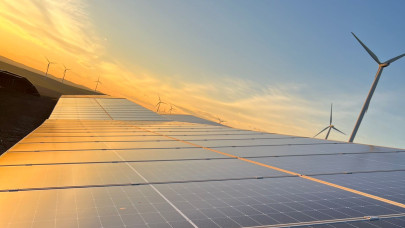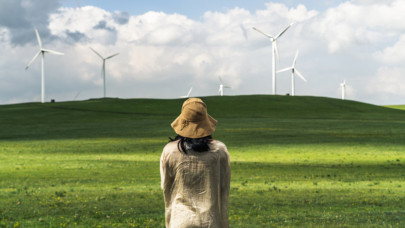When the share of fossil fuels in global generation falls beneath 60%, this will mark the first time it has gone below this threshold in IEA records dating back more than five decades.
Record-setting electricity generation from low-emissions sources – comprising renewables, such as solar, wind, and hydro, as well as nuclear power – should reduce the role of fossil fuels in providing power for homes and businesses. Low-emissions sources are expected to account for almost half of the world's electricity generation by 2026, up from a share of just under 40% in 2023.
“The power sector currently produces more CO2 emissions than any other in the world economy, so it's encouraging that the rapid growth of renewables and a steady expansion of nuclear power are together on course to match all the increase in global electricity demand over the next three years. This is largely thanks to the huge momentum behind renewables, with ever-cheaper solar leading the way, and support from the important comeback of nuclear power, whose generation is set to reach a historic high by 2025. While more progress is needed, and fast, these are very promising trends”, says IEA Executive Director Fatih Birol.
The report finds that the increase in electricity generation from renewables and nuclear appears to be pushing the power sector's emissions into structural decline. Global emissions from electricity generation are expected to decrease by 2.4% in 2024, followed by smaller declines in 2025 and 2026.
The decoupling of global electricity demand and emissions would be significant given the energy sector's increasing electrification, with more consumers using technologies such as electric vehicles and heat pumps. Electricity accounted for 20% of final energy consumption in 2023, up from 18% in 2015, though meeting the world's climate goals would require electrification to advance significantly faster in the coming years.
Electricity prices in Europe last year were still more than double pre-Covid levels, while prices in the United States were about 15% higher than in 2019. Electricity demand in the European Union declined for the second consecutive year in 2023, and it is not expected to return to levels seen before the global energy crisis until 2026 at the earliest.
As a region, Africa remains an outlier in electricity demand trends, according to the report's analysis. While electricity use per capita in India and Southeast Asia has risen rapidly, it has been effectively stagnant in Africa for more than three decades.
“Electricity use is a key indicator of economic development in any country, and it's a grim sign that it has flatlined in Africa on a per capita basis for over three decades. Access to reliable, affordable, and sustainable energy for all citizens is essential for African countries to achieve their economic and climate goals. The international community needs to work together with African governments to enable the urgent progress that is needed”, says Birol.










